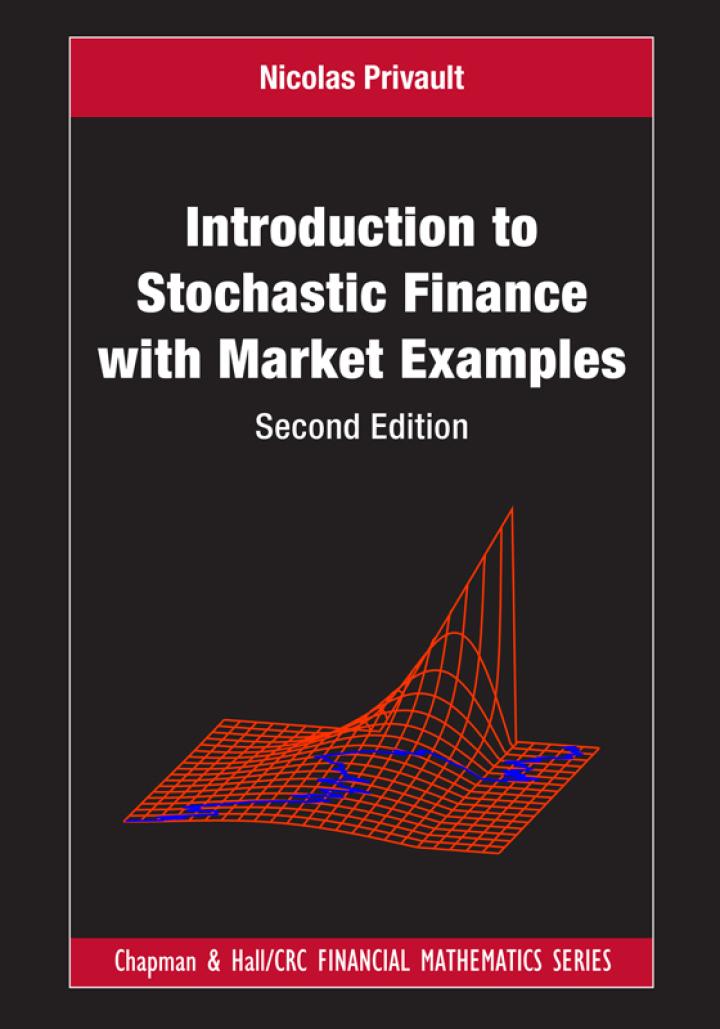Pricing by the Esscher transform (Gerber and Shiu (1994)). Consider a compound Poisson process (left(Y_{t} ight)_{t in[0,
Question:
Pricing by the Esscher transform (Gerber and Shiu (1994)). Consider a compound Poisson process \(\left(Y_{t}\right)_{t \in[0, T]}\) with \(\mathbb{E}\left[\mathrm{e}^{\theta\left(Y_{t}-Y_{s}\right)}\right]=\mathrm{e}^{(t-s) m(\theta)}, 0 \leqslant s \leqslant t\), with \(m(\theta)\) a function of \(\theta \in \mathbb{R}\), and the asset price process \(S_{t}:=\mathrm{e}^{r t+Y_{t}}, t \in[0, T]\). Given \(\theta \in \mathbb{R}\), let
\[N_{t}:=\frac{\mathrm{e}^{\theta Y_{t}}}{\mathbb{E}\left[\mathrm{e}^{\theta Y_{t}}\right]}=\mathrm{e}^{\theta Y_{t}-t m(\theta)}=S_{t}^{\theta} \mathrm{e}^{-r \theta t-t m(\theta)}\]
and consider the probability measure \(\mathbb{P}^{\theta}\) defined as
\[\frac{\mathrm{d} \mathbb{P}_{\mid \mathcal{F}_{t}}^{\theta}}{\mathrm{d} \mathbb{P}_{\mid \mathcal{F}_{t}}}:=\frac{N_{T}}{N_{t}}=\mathrm{e}^{\left(Y_{T}-Y_{t}\right) \theta-(T-t) m(\theta)}, \quad 0 \leqslant t \leqslant T\]
a) Check that \(\left(N_{t}\right)_{t \in \mathbb{R}_{+}}\)is a martingale under \(\mathbb{P}\).
b) Find a condition on \(\theta\) such that the discounted price process \(\left(\mathrm{e}^{-r t} S_{t}\right)_{t \in[0, T]}=\) \(\left(\mathrm{e}^{Y_{t}}\right)_{t \in[0, T]}\) is a martingale under \(\mathbb{P}^{\theta}\).
c) Price the European call option with payoff \(\left(S_{T}-K\right)^{+}\)by taking \(\mathbb{P}^{\theta}\) as risk-neutral probability measure.
Step by Step Answer:

Introduction To Stochastic Finance With Market Examples
ISBN: 9781032288277
2nd Edition
Authors: Nicolas Privault





